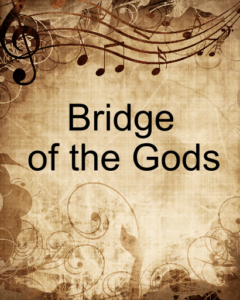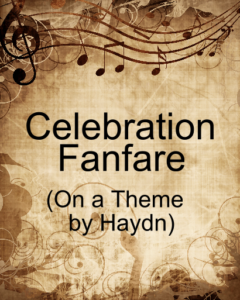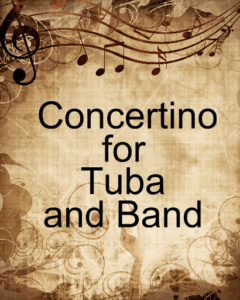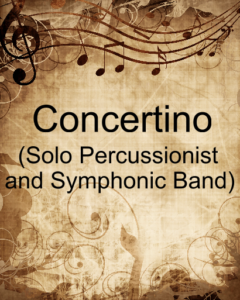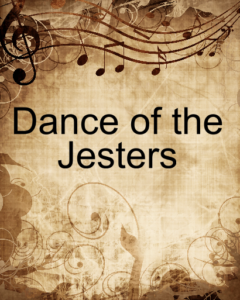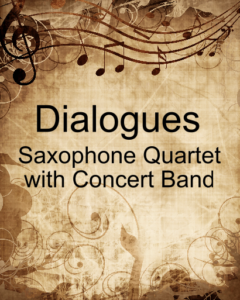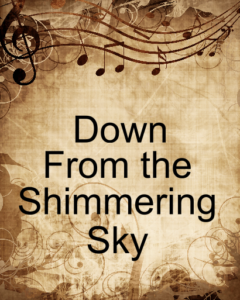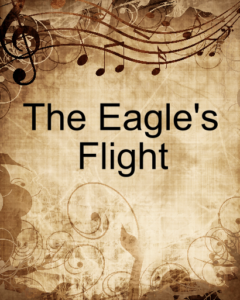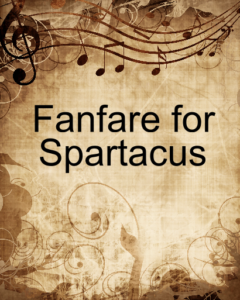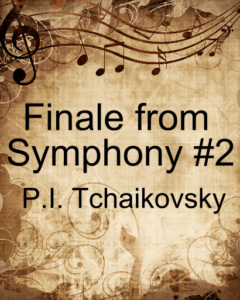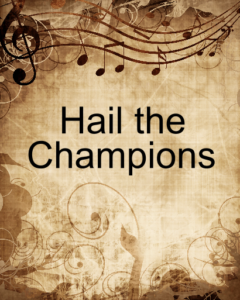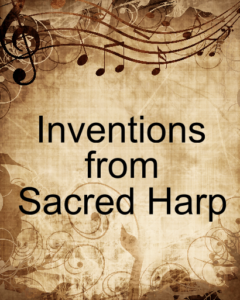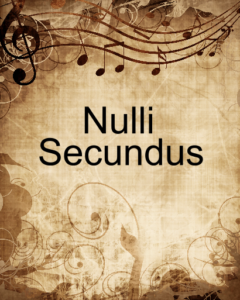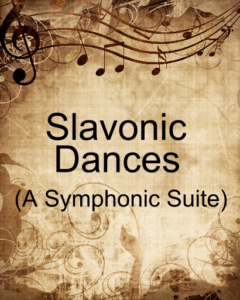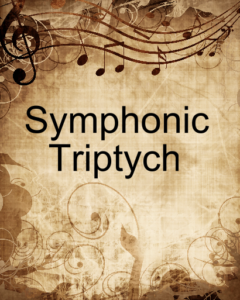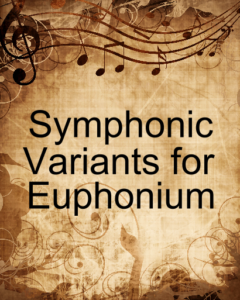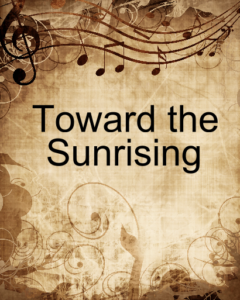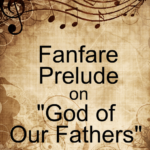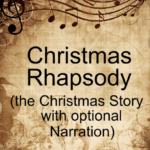Grade: 5
Price: $125
Commissioned by the Oregon Symphonic Band in Portland, Bridge of the Gods is a dramatic three-movement symphonic poem presenting the colorful legend told by the Native American Klickitatst about the origins of the volcanic mountains of the Cascade range and legendary bridge. The first movement (“Saghalie”) pays tribute to the powerful chief of all gods and is based on a majestic fanfare theme. The second movement captures the beauty of the maiden “Loowit,” with haunting flute and English horn solos accompanied by soft chanting voices. The final movement, “Tanmahawis,” utilizes stark clusters, jagged melodic fragments, and rhythmic percussive energy as it depicts the destruction of the mighty bridge. Dur: 8:50
Grade: 5
Price: $95
Franz Joseph Haydn's famous melody from the second movement of the “Emperor” Quartet (String Quartet, Op. 76) was the basis for the national anthem of Austria for more than a century, and is frequently heard in hymns, anthems, and alma maters worldwide. In this celebratory extended fanfare, composer James Curnow skillfully weaves this majestic melody into a work which is both exuberant and energetic. Recorded by the Cobb Wind Symphony (Marietta, GA) – Alfred Watkins and Robert Cowles conductors, premiered during their performance at the 2018 Midwest International Band and Orchestra Clinic. Dur: 4:25
Grade: 5
Price: $94
Concertino for Tuba is a welcome addition to the somewhat limited library of works for solo tuba. James Curnow's great understanding of the low brass instruments and his dynamic, varied and colourful style make this a wonderful piece of music.
Grade: 5
Price: $129
Tschaikovsky wrote The Dance of the Jesters as incidental music for the ballet The Snow Maiden, a ballet based, not on the Hans Christian Andersen story, but on the Russian fantasy-play Snegourochka. The Snow Maiden, daughter of Father Frost, falls in love with a human (Misgir) and plans to marry him. However, Misgir is already betrothed to Coupava. The Snow Maiden follows him southward to interrupt his wedding, but she falls victim to the warmth of the sun and melts. The jesters' dance is an incredibly lively affair that has stood out from the songs, dances, and choruses of the ballet, capturing the color and zest of Russian folk dance.
Grade: 5
Price: $129
Expect the unexpected in this major work for saxophone quartet and band by James Curnow. Built on a grand thematic plane, this tour de force
employs the full range of expression. Gleaming modernity; dark
modality; rhythms ranging from tentative to deliberate – and throughout,
a sense of mysterious expectation for what is next to come.
Grade: 5
Price: $129
A concert centerpiece, this major work from James Curnow explores the spiritual perspectives of the First Nations of the Pacific Northwest in North America. The five movements investigate the cosmos and its four worlds; with such complete contrasts as “The Undersea World” and the ceremonial dance in “The Mortal World,” an authentic First Nations melody in “The Spirit World” and the ethos of “The Sky World,” the wonders are many.
Grade: 5
Price: $139
It's taken a lot of hard work to bring your ensemble to this level of
performance – now set them free! High-flying melodies, emotive harmonic
structures, and an electrifying finale combine into a beautifully
crafted and ennobling musical statement.Curnow's music is by turns
sparkling, energetic, pensive, playful, reminiscent, heroic – as much a
thrill for the audience as it is for the ensemble.
For the
25th Anniversary of Mr. Jeffrey Greene, Greece Olympia High School Band
Teacher, New York. He challenged our talents, enriched our imaginations,
encouraged our dreams, and they have taken flight.
Grade: 5
Price: $114
Tchaikovsky, like countless composers who have found inspiration in folk melody, loved Russian folk music all his life. While composing his second symphony in 1872-73, he was inspired by farmers' songs that had fascinated him during a stay in Kamenka (near Kiev). For the finale, he used the melody from the song The Stork. James Curnow's transcription of this 19th-century masterpiece will allow your ensemble to bring its contest or concert performance to a fitting finale.
Grade: 5
Price: $125
Commissioned for the University of Akron Symphonic Band, this dynamic work celebrates 100 years of music composed for the Olympic Games. Based on three primary themes, the first is a brilliant fanfare that serves as an introduction as well as a unifying link throughout. Second is the 1896 Olympic Hymn (music by Spyros Samaras) set in a beautiful lyric style which builds to a magnificent climax juxtaposed with the opening fanfare. The final section presents a new version of Mr. Curnow's own Olympic Fanfare and Theme for the Olympic Flag which was commissioned for the 1996 Olympic Games in Atlanta and performed again in 2000. The dramatic closing is again combined with elements of the opening fanfare. Dur: c. 6:40
Grade: 5
Price: $129
Using a symphonic variant style (like that of Hindemith's Symphonic Metamorphosis), James Curnow has written a magnificent compositional exploration of themes based on the shape-note tune “Resignation.” Advanced groups love to play music at this level of challenge and substance, and directors will appreciate the developmental techniques woven into its fabric. Add a history unit on The Sacred Harp for some cross-curricular work.
Grade: 5
Price: $85
James Curnow's uplifting new work for the mature band makes the most of thrilling momentum, masterful counterpoint, rich colors and strong melodic contours. Mr. Curnow's commanding development of thematic ideas is exceptional. As the concepts merge in the finale section, the piece reaches the highest levels of the symphonic band art. Performance piece; player's piece; study piece and more; it's all here.
Grade: 5
Price: $195
Commissioned by the Michigan School Band and Orchestra Association, this major work by James Curnow honors the memory and legacy of renowned conductor and educator Harry Begian. In consideration of Dr. Begian's Armenian heritage, Nulli Secundus (“second to none”) is a suite of three variations based on the Armenian folk song Cilicia (My Homeland). Movements include: I. March Caprice (concert march in fantasy variation form), II. In Memoriam (honoring victims of the 1915-18 Armenian Genocide), and III. Finale (rapid paced set of variations). Recorded by the Michigan State University Wind Symphony. Dur: 10:00
Grade: 5
Price: $95
This monumental suite is one of the most impressive transcriptions ever published. Every note comes from the original Dvorak work, including the transitions from one dance to the next. Written for Dr. Harry Begian's last tour with the University of Illinois Symphonic Band, this powerful concert work lets every section of the band shine ... a must for mature groups.
Grade: 5
Price: $129
Through variations in tempo and tone, Symphonic Variants brings forth the sonority of the euphonium and the skills of the soloist. The work begins with an allegro con espressivo statement of the theme and alternates with adagio and allegro con spirito variations. Lento, presto, and pesante treatments add further interest to the composition.
Grade: 5
Price: $85
